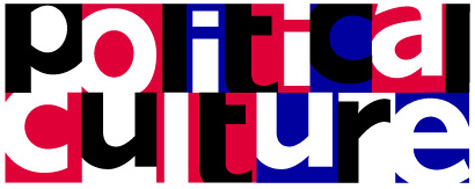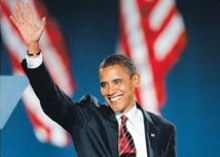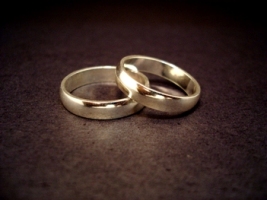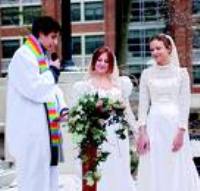
President Obama has just made some history that’s perhaps as significant as the legislation that emerged from his first two years in office … perhaps more significant, really. For the first time in history, a president of the United States has stated, publicly and unequivocally, his support for the fullest possible extent of gay rights. No matter how he got here — the years of fumbling around on the issue, the pressure created by Vice President Biden over the weekend as well as North Carolina’s despicable move yesterday, the odd timing of the statement in advance of what promises to be the most lucrative fundraiser in history at George Clooney’s house this week — there’s no denying that it took a whole lot of courage for Obama to make this statement, on television, during an election year.
[youtube id=”sSWQrimB8XQ” width=”600″ height=”350″]And now we’ll see how both the left and right choose to push the electorate’s buttons on this issue. Will the Romney campaign allow itself (or be forced) to pull off its economic message in order to engage on a social issue that doesn’t cut clearly in any particular direction? How will the Obama campaign balance its desire to re-ignite the political passions of younger (and more-evolved, as this issue is concerned) voters with its need to hold ground with independents in swing states with anti-gay marriage amendments in their constitutions, such as Virginia, Ohio, and now North Carolina? And — let’s face it, this is the most entertaining question — how ugly will this debate get over the next six months, and will conservatives go over the edge here the way they have on immigration and women’s reproductive rights over the last six months?
Of course, Obama’s statement today doesn’t erase bigotry from 32 state constitutions; it won’t necessarily influence the court cases that are proceeding (too slowly) toward resolution; it won’t even change administration policy, which already has jettisoned support for the Defense of Marriage Act and has (again, too slowly) pushed forward on increasing partnership and spousal rights for gay couples in government. What’s most likely, at least over the next six months, is that public opinion on gay marriage (most recent Gallup polling: 50% approve, 48% disapprove, with independents leaning 57-40 in favor) will stratify along party lines the same way every other issue already has, from Medicare to climate change. Republicans will calcify in their vociferous opposition to gay rights, as long as Obama supports them; Democrats will attempt to use the issue to mobilize progressive voters who have been disheartened, or lulled to sleep, by the partisan warfare and snail-like progress of the last three years. The big question is, who will be more motivated to go to the polls by this announcement — those who want to move forward, or backward?
 It wouldn’t be surprising for election-day polling on the issue to mirror the presidential vote almost precisely. It’s next year, and the years after that, when Obama’s (long-time-coming) courage will make a real and lasting impact on Americans’ view of marriage rights. Everybody — and I mean everybody, left, right and center — knows that marriage equality is coming. There’s no stopping it, merely delaying it through efforts like North Carolina’s. Placing gay marriage, or civil rights in general, on the ballot is profoundly wrong for all sorts of reasons; to do so during a low-interest, low-information election when the only the opponents of those rights are driven to the polls for other reasons (like, say, a nominating contest) is a chump move, pure and simple. (See Newark mayor Cory Booker’s recent statement on allowing the public to vote on minority rights for a lesson in on-the-spot erudition.) North Carolina will pay for that move the same way Arizona is paying for its stupidity on immigration and Planned Parenthood, and the same way Florida is beginning to pay for its insane gun laws, through lower tourism and convention income. And someday very soon, the North Carolinians who voted for that amendment are going to feel foolish and ashamed of themselves.
It wouldn’t be surprising for election-day polling on the issue to mirror the presidential vote almost precisely. It’s next year, and the years after that, when Obama’s (long-time-coming) courage will make a real and lasting impact on Americans’ view of marriage rights. Everybody — and I mean everybody, left, right and center — knows that marriage equality is coming. There’s no stopping it, merely delaying it through efforts like North Carolina’s. Placing gay marriage, or civil rights in general, on the ballot is profoundly wrong for all sorts of reasons; to do so during a low-interest, low-information election when the only the opponents of those rights are driven to the polls for other reasons (like, say, a nominating contest) is a chump move, pure and simple. (See Newark mayor Cory Booker’s recent statement on allowing the public to vote on minority rights for a lesson in on-the-spot erudition.) North Carolina will pay for that move the same way Arizona is paying for its stupidity on immigration and Planned Parenthood, and the same way Florida is beginning to pay for its insane gun laws, through lower tourism and convention income. And someday very soon, the North Carolinians who voted for that amendment are going to feel foolish and ashamed of themselves.
I have written extensively about gay marriage before, here and here and here and here and elsewhere. Here’s the gist of what I’ve argued before: The basic question surrounding gay marriage is a constitutional one: Will the religious beliefs of one segment of our society — no matter how large or small — be allowed to dictate the laws of a diverse nation? Based on the First Amendment, the simple answer is ”no” … but when it comes to politics and religion, things are never that simple. So here’s the longer answer:
The founding fathers, despite their acceptance of 18th-century societal ”norms” regarding slavery and the rights of women, set up America’s civil society with the ideal of recognizing each individual’s rights equally. As the centuries have passed, our nation and its laws have advanced inexorably closer and closer to that ideal. As it pertains to gay marriage, however, our basic problem is the fact that our modern definition of marriage is really a two-part equation.
 It’s a religious tradition — a practically universal one among faiths worldwide — that conforms to formal strictures beginning with a ”sacrament” and continuing with a variety of moral boundaries (no adultery, ”til death do us part” and all that). Of course, the sacrament of marriage long ago stopped depending exclusively upon religion for legitimacy; any Vegas wedding-chapel Elvis can tell you that.
It’s a religious tradition — a practically universal one among faiths worldwide — that conforms to formal strictures beginning with a ”sacrament” and continuing with a variety of moral boundaries (no adultery, ”til death do us part” and all that). Of course, the sacrament of marriage long ago stopped depending exclusively upon religion for legitimacy; any Vegas wedding-chapel Elvis can tell you that.
However, marriage is at the same time a state-sanctioned (indeed, state-licensed) union that entitles those who enter into it to more than 1,000 federally recognized benefits, in addition to those offered by banks, insurers, and other private and public institutions. And currently, in 44 states at least, marriage is a right that is granted to people of one sexual orientation but not to the other, thereby excluding gays from all those benefits.
From a civil-libertarian standpoint, this situation is untenable. The state simply cannot bestow rights upon one group of citizens that it does not give to all. It’s discrimination, pure and simple, and contradicts the values of liberty and prosperity upon which the nation was founded.
So what we have here is the very definition of a church-state contradiction. Churches cannot and should not be forced to bless or recognize the marriage of anyone they choose to exclude; they’re not public institutions with legal obligations (as long as we ignore that pesky matter of tax exemptions and the responsibilities they confer), and they’re entitled to exclude anyone they want. If members of a particular church can live with their beliefs and practices, then so be it.
However, the federal government cannot be exclusionary in the same way, even if it is acting on behalf of millions of citizens who hold such beliefs. The principles of equality and freedom are right there in the Constitution, and as we move closer to a ”more perfect union,” the laws and policies that institutionalize old prejudices must inevitably fall away. If they don’t, we’ll eventually reach a point at which our ”American experiment” has reached its logical conclusion, and we’ll remember it as a near-miss in mankind’s attempt to achieve equality for all.
 So, then, what’s the solution to the church-state conundrum? Must the state, in the name of equality, give up the power to license and recognize ”marriages,” settling instead for recognizing ”unions” for both gays and straights? If we do that, then is ”marriage” a status reserved for church members, thus excluding from the institution not only the fraction of the population that is gay, but also the growing percentage of married couples (like my wife and myself) who were not married in a church and/or are generally ”unchurched”? And what, in that circumstance, would define a ”church”? Would Elvis wedding chapels qualify?
So, then, what’s the solution to the church-state conundrum? Must the state, in the name of equality, give up the power to license and recognize ”marriages,” settling instead for recognizing ”unions” for both gays and straights? If we do that, then is ”marriage” a status reserved for church members, thus excluding from the institution not only the fraction of the population that is gay, but also the growing percentage of married couples (like my wife and myself) who were not married in a church and/or are generally ”unchurched”? And what, in that circumstance, would define a ”church”? Would Elvis wedding chapels qualify?
I don’t think any of that is necessary. It is entirely appropriate for the state to define marriage broadly, while various religious faiths define it however narrowly they want; after all, the Catholic church (for one) already forbids some things that the government not only supports, but funds (family planning, for instance, at least for the moment). As for individual beliefs … well, there’s no law against bigotry, and there can’t be. So, must all those who stand against gay marriage on moral grounds (or just because they find it distasteful) change their position? No. Must they, as citizens of a free society, stand aside and allow their fellow citizens to exert their inalienable rights as freely as they themselves can? Yes.
Obama has finally admitted, publicly, that he has reached a similar conclusion. He probably did it a long time before he was willing to tell us about it, but whatever. It’s out there now. And know this: No matter how Obama’s declaration redounds during this election year, gay marriage is going to become a reality in all 50 states. Soon. And when it does, the history books will give him “a whole lot of credit” (as Mitt Romney says, hilariously, on another issue) — and eventually the 48 percent of the public that hasn’t yet evolved to the extent he has will wonder what they were fighting about. Or at least their kids will wonder, and they’ll wonder why their parents didn’t have the same courage (or common sense) that their president had in 2012.





Comments